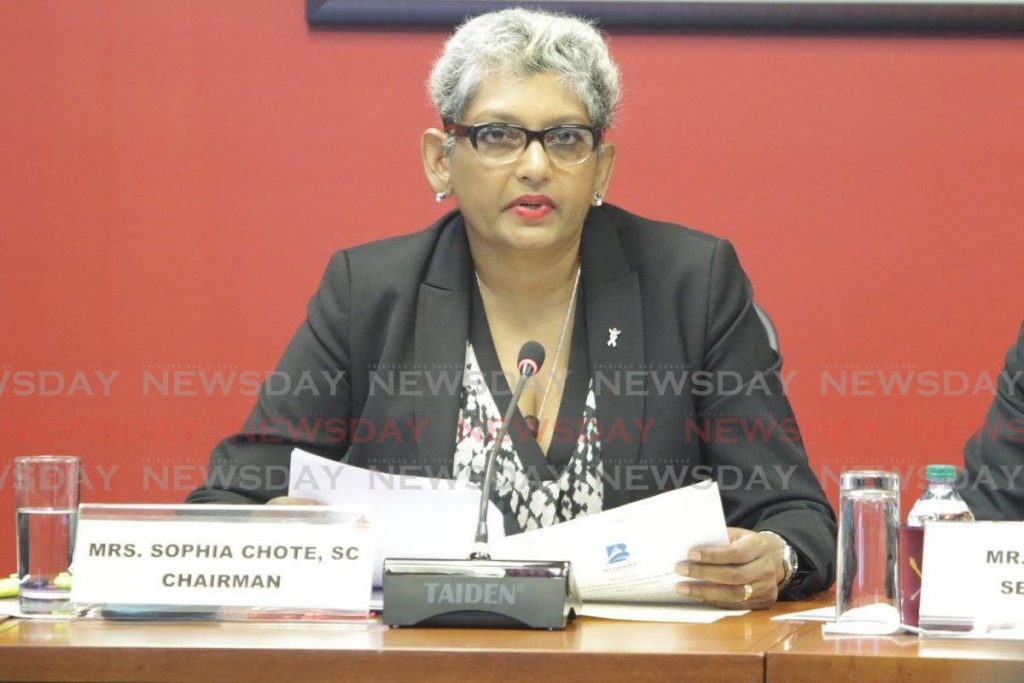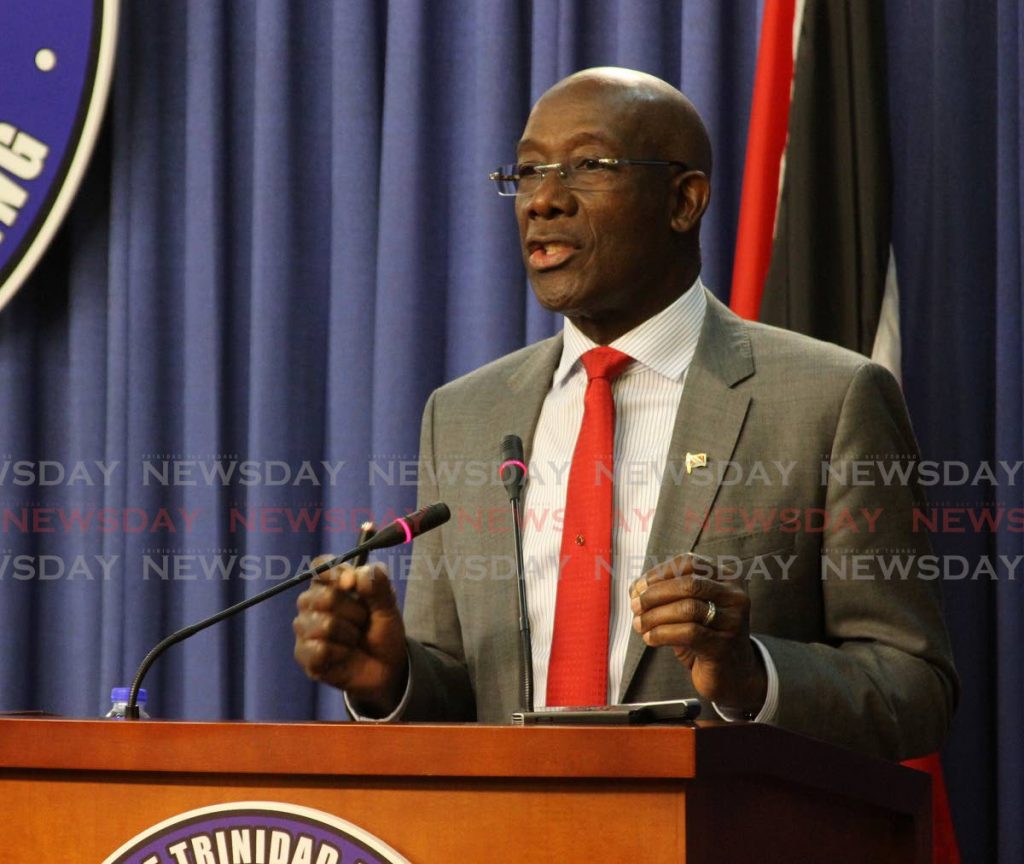Law Association: Rowley wrong on cops entering private property

THE Law Association of Trinidad and Tobago said the Prime Minister is wrong to suggest that police can enter private properties to enforce public health regulations. To do so, the association said, would be illegal.
Dr Rowley was speaking at a news conference in Tobago on Thursday to announce stricter measures to deal with the rising number of covid19 infections and deaths.
He said, “I expect there will be greater observation of the request and demand that house parties, family gatherings, liming by a house next to a bar and those kind of things, that the already overworked police will go one step further, and where they believe the activities taking place which are inimical to the public interest, that under the protection of existing law the police will intervene.”
In a two-page statement on Friday, the association, led by Senior Counsel Sophia Chote, said, “The association is of the view that this is simply wrong. The ordinance permits the entry on private property only for particular purposes such as inspection, doing sanitary work and so on.
“The clear intention of the legislation is to allow authorities to enter ‘infected’ premises to inspect, sanitise and do whatever else may be necessary. The ordinance also seems to circumscribe this power by suggesting its exercise must be endorsed by a magistrate.”
The association’s view was supported by Opposition senator Jayanti Lutchmedial, who said the police can only enter a private residence if they suspect someone in the house has either absconded from quarantine, or is covid19-positive and a gathering in the home becomes a public health concern.

“A police officer can enter your house without a warrant if he believes an arrestable offence is taking place. That to me does not apply here because there is no offence of knowing that you have covid19 and are spreading it.
“If the police can enter my home to stop me from hugging my Nani (Hindi for maternal grandmother) and Aaji (paternal grandmother), then they ought to have stopped little Johnny’s arm-wrestling party.”
She continued: “There is no offence of congregating in a private residence or too many people congregating in a private residence?”
Contacted for comment before the association’s statement, Police Commissioner Gary Griffith said the PM was very clear and correct.
“I said this several months ago. Under 133 of the Public Health Ordinance, it gives that authorisation if at any time there is the belief that something is taking place on private property which can affect the health of others directly or indirectly. We can intervene. We can have that, with the support of the public health officers.”
In a subsequent statement in which he chastised the association, Griffith said the police service is not minded or guided to enter private homes to regulate family or small gatherings.
“The guidance remains where a gathering is considered a mass gathering, inclusive of payment, thereby transforming the private space into a public space.
“To allude that the police have intentions to simply barge into any home without due process and without good reason, displays the reckless nature of (the association), as this was never avowed.
“The (commissioner of police) wishes to advise law-abiding citizens not to be confused by the irresponsible comments made by a law association whose only releases are earmarked to discredit others and tell others how to do their job.
“At a time when relevant bodies should be persuading all to adhere to the guidance and direction of the State and work with the police, unfortunately, we have one whose intention seems apparent to do just the opposite.”
Rowley said on Thursday the time of citizens spreading the virus “with impunity” in their own homes has ended.
“I have been properly advised by lawyers who have been properly trained, and the advice that I have is that the existing laws in the Public Health Act, and the regulations that flow from there, allow the police to intervene in private spaces if the police is of the opinion that what is going on in the private place is detrimental to the public with respect to this public health emergency.”
In its release, the association said, “We remind our members and members of the public that there are no regulations governing conduct on private property in terms of numbers of people who may be there, masks and social distancing.
“Indeed, it is likely that in light of our constitutional protections, no regulations can be made to regulate conduct on private property.” The association urged citizens to act responsibly to ensure the spread of the virus is slowed and eventually stopped.
Commenting on the issue on his Beyond the Tape programme, head of the Special Operations Response Team (SORT) Supt Roger Alexander suggested that a judge give the police some direction on the issue as he questioned if it must be challenged in court before clarity is achieved.
“It looks like we fighting each other down to stay safe. You know what will make the difference in all of this? A state of emergency. I'm not suggesting it, but with a state of emergency powers will change and there will be no private and public space. We probably have to consider that. Not a whole state of emergency, probably a time, 8 pm-6 am, might work.”
Last December, Attorney General Faris Al-Rawi said there were strategies being worked on to prevent public and private gatherings. He said then that public health inspectors will have the authority to enter any space – public or private – if they believe there is an imminent danger. A task force was promised since then to address the issue, but it is yet to be established.

Comments
"Law Association: Rowley wrong on cops entering private property"